
+91 8095511877

+91 8095511877
Breast cancer occurs when some cells in the breast start multiplying abnormally. While men can also develop breast cancer, it is much more common in women. The risk increases with age.
Breast cancer can be fatal if not detected and treated at the early stages. It usually starts as a small lump in the breast, usually found during self-examination.
The easiest and best way to detect early-stage breast cancer is through mammography.
Some factors increase the risk of breast cancer such as
There are four main stages of breast cancer with some sub-stages. These stages help the doctor in planning the right form of treatment for you.
Stage 0
Stage 0 indicates non-invasive breast cancers, such as DCIS (ductal carcinoma in situ). There is no evidence of cancer cells invading to surrounding tissues.
Stage I
Stage I indicates invasive breast cancers that involves normal surrounding breast tissue. There are two sub-stages here.
Stage IA
The tumor measures up to 2 cm and has not spread outside the breast. No lymph nodes are involved
Stage IB
There is no tumor in the breast, but there are small groups of cancer cells measuring up to 2 mm in the lymph nodes
Or
There is a tumor, but not larger than 2 cm. Cancer cells, less than 2mm, has spread to the lymph nodes now.
Stage II
Stage IIA
Cancer cells, larger than 2mm, has spread to 1-3 lymph nodes now
Or
The tumor, which measures less than 2 cm, has spread to the axillary lymph nodes
Or
There is a tumor of size between 2 cm and 5 cm, but not spread to the axillary lymph nodes.
Stage IIB
The tumor size is between 2 cm and 5 cm and has spread to the lymph nodes
Or
The tumor is larger than 5 cm but not spread to the axillary lymph nodes.
Stage III
Stage IIIA
The tumor has spread to 4 to 9 lymph nodes
Stage IIIB
The tumor has spread to the chest wall or skin of the breast or both.
It may have now spread up to 9 axillary lymph nodes.
Stage IIIC
The tumor has now spread to more than ten lymph nodes. Lymph nodes above or below the collar bone may be involved
Stage IV
Stage IV indicates invasive breast cancers that have spread beyond the breast and to the nearby or distant lymph nodes. It may have also spread to other organs of the body, such as the lungs, bones, liver, or brain
The symptoms of breast cancer may be different for different people. Certain people may not have any signs at all.
Some of the signs of breast cancer are
While planning treatment for breast cancer, the doctors will consider the following factors.
Treatment includes:
The type of treatment and the order is as per the expression of certain markers like Estrogen Receptors(ER), Progesterone Receptors(PR), Her-2-neu.
In advanced-stage breast cancers, treatment aims to shrink the secondary tumors to bring about remission.
There are two main types of surgeries for breast cancers. They are
Breast-conserving surgeries
There are many types of breast-conserving surgeries such as
Mastectomy
A mastectomy involves the removal of the entire breast tissue, including the nipple. If cancer has spread to the lymph nodes, you may also have a lymph node dissection.
Radiotherapy for breast cancer
Radiotherapy uses metered doses of radiation to destroy cancer cells. It may also be done after surgery and chemotherapy to kill any remaining cancer cells.
If you are having radiotherapy after surgery or chemotherapy, there will be a gap of around one month to help you recover.These sessions last only a few minutes, and you may have it for 3 to 5 days in a week for 5-6 weeks.
There are two main types of radiation treatments for breast cancers.
Chemotherapy uses medicines to kill cancer cells. You may have this before or after surgery, depending on the size and extent of the tumor.
If done after surgery, to destroy any remaining cancer cells, it is called adjuvant chemotherapy. If done before surgery to shrink the tumor, it is neo-adjuvant chemotherapy.
The naturally occurring hormones fuel the growth of certain types of breast cancers in the body, namely estrogen or progesterone.
These types of cancer are hormone receptor-positive cancers. Hormone therapy aims to lower the levels of hormones in the body and thereby reducing their effects.
This treatment uses medicines that increase the immunity of the body and thereby helping it to destroy the cancer cells.
The treatment is common for cancers that are HER2-positive. It is not the right option if you have heart problems or hypertension.
The surgical removal of a breast can be very upsetting for a woman as it results in a change in the shape of the body. Breast reconstruction surgery helps to restore the original shape. This surgery uses breast implants or tissues from other parts of the body to reconstruct your breast.
Other side effects like early onset menopause, loss of interest in sexual activity can cause emotional problems. Proper counseling and guidance will help in this situation.
As we do not know the proper cause, prevention is not easy. However, you can make some lifestyle changes to reduce the risk. They include


This article has been reviewed for medical correctness and relevance by
Dr Niti Raizada
Dr. Niti Raizada is a senior Medical Oncologist with over fifteen years of experience in the field. Dr Niti has special interests in the areas of Thoracic, Gastrointestinal, Breast, Gynaecological Oncology, and Bone Marrow Transplants. She did her MBBS at Gandhi Medical College, Bhopal; MD-General Medicine at G R Medical College, Gwalior, DNB-General Medicine from National Board Of Examination,DM from Adyar Cancer Institute Chennai and Fellowship in Hematology from Hammersmith Hospital and Imperial College,London. She is a member of American Society of Clinical Oncology,USA; Royal College of Physicians,Edinburgh,UK; Member of Pharmacy Committee,Member of DNB teaching program in Medical Oncology and European Society of Medical Oncology (ESMO).

Aida Ismail
Australia
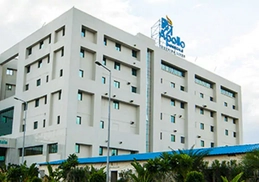
Apollo Chennai
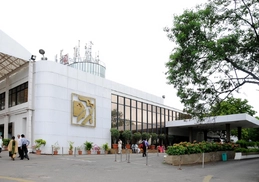
Apollo Health City
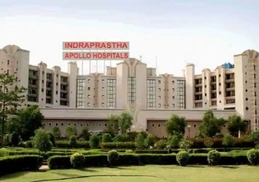
Apollo Indraprastha

Apollo Mumbai
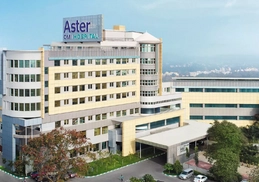
Aster CMI
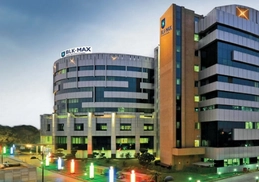
BLK Hospital
Frequently Asked Questions
What is the most common treatment for breast cancer?
Is breast cancer curable in India?
Which is the best hospital in India for breast cancer treatment?
How much does it cost for breast cancer treatment in India?